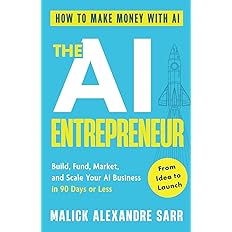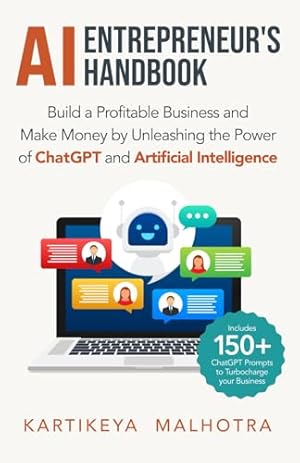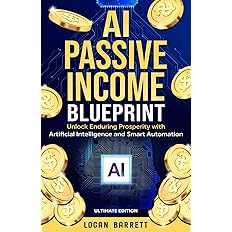Understanding the AI Landscape
Artificial Intelligence is transforming industries and creating unprecedented opportunities for wealth generation. The global AI market is expanding rapidly, with projections reaching $1,811.75 billion by 2030.
This growth represents a basic shift in how businesses operate and innovate.
AI’s impact spans across sectors:
- Healthcare: AI assists in diagnosis, drug discovery, and personalized treatment plans.
- Finance: AI powers algorithmic trading, fraud detection, and risk assessment.
- Manufacturing: AI improves production processes and enables predictive maintenance.
- Retail: AI enhances customer experiences through personalized recommendations and inventory management.
Despite this massive growth, a significant skills gap exists. Companies are actively seeking AI talent and are willing to pay premium salaries for expertise in this field.
This creates an excellent opportunity for those willing to develop skills in AI and machine learning.
Articles similar to this one can be found at: https://aiismsforbeginners.com/

AI-as-a-Service: Your Entry Point to AI Profits
AI-as-a-Service (AIaaS) platforms provide an accessible way to start monetizing AI skills. These services allow you to leverage powerful AI capabilities without massive upfront investments in infrastructure or deep technical expertise.
To get started with AIaaS:
- Identify your niche: Focus on a specific industry or problem that AI can solve effectively.
This could be anything from sentiment analysis for social media marketing to predictive maintenance in manufacturing.
- Choose your platform: Several robust options exist for beginners and experts alike:
- Google Cloud AI
- Amazon SageMaker
- Microsoft Azure AI
- IBM Watson
- Develop your solution: Utilize pre-trained models or create custom ones to address your chosen problem.
Many platforms offer drag-and-drop interfaces for model building, making it accessible even for those without extensive coding experience.
- Market your service: Emphasize the tangible benefits and return on investment (ROI) of your AI solution to potential clients.
Use case studies and concrete metrics to show value.
Starting with a small, well-defined problem allows you to show value quickly and build credibility. As you gain experience, you can expand your offerings and tackle more complex challenges.
A great guidebook to start on your AI money making is here: https://amzn.to/3EaRGdF

Note: As an Amazon Associate, I may earn a commission from qualifying purchases.
The AI Consultant’s Playbook
As organizations rush to combine AI into their operations, the demand for AI consultants and implementation specialists is soaring. This field offers lucrative opportunities for individuals who possess a combination of technical knowledge and business acumen.
To succeed as an AI consultant:
- Develop a broad understanding of AI technologies and their business applications.
Stay current with the latest AI trends and breakthroughs by following industry publications, attending conferences, and participating in online courses.
- Hone your communication skills to explain complex AI concepts to non-technical stakeholders.
The ability to translate technical jargon into business value is crucial.
- Build a portfolio of successful AI implementations or case studies.
Even if you’re just starting, consider creating hypothetical case studies or working on pro-bono projects to showcase your skills.
- Network aggressively within your chosen industry or niche.
Attend industry events, join professional associations, and engage with thought leaders on social media platforms like LinkedIn.
- Develop a deep understanding of the specific challenges and opportunities within your target industries.
This knowledge allows you to position your AI expertise as a solution to pressing business problems.
As a consultant, your value comes from your ability to deliver tangible business outcomes. Always frame your expertise in terms of how it can improve efficiency, reduce costs, or drive revenue growth for your clients.
Quick jump to start making money is available here: https://amzn.to/40ybIWS

Note: As an Amazon Associate, I may earn a commission from qualifying purchases.
Creating AI-Powered Products: From Concept to Market
For entrepreneurs, developing AI-powered products can lead to significant wealth creation. The key is identifying real-world problems that AI can solve more efficiently or effectively than existing solutions.
Here’s a roadmap to bring your AI product to market:
- Ideation: Brainstorm problems in your industry that could benefit from AI.
Look for tasks that are repetitive, time-consuming, or prone to human error.
- Market Research: Validate your idea by talking to potential customers and analyzing competitors.
Understand the pain points you’re addressing and how much value your solution could provide.
- Prototype Development: Build a least viable product (MVP) to test your concept. This doesn’t need to be perfect – it just needs to show the core functionality of your idea.
- Data Acquisition: Gather and clean the data needed to train your AI models.
This step is crucial, as the quality of your data will directly impact the performance of your AI.
- Model Development: Create and refine your AI algorithms.
This may involve experimenting with different machine learning techniques to find the best approach for your specific problem.
- User Testing: Get feedback from real users and iterate on your product.
Pay close attention to usability and how well your AI solution combines into existing workflows.
- Launch and Scale: Bring your product to market and continuously improve based on user feedback and performance metrics.
The most successful AI products often mix AI capabilities with human expertise. This synergy creates solutions that are more powerful and adaptable than either AI or humans alone could achieve.
Here is a step-by-step start-up book you need: https://amzn.to/3ClPQpH

Note: As an Amazon Associate, I may earn a commission from qualifying purchases.
Ethical Considerations in AI
AI ethics is becoming increasingly important as regulations tighten and public scrutiny intensifies. Addressing ethical concerns proactively can mitigate risks and differentiate your offerings in a crowded market.
Key ethical considerations include:
- Bias and Fairness: Ensure your AI models don’t perpetuate or amplify existing biases.
This needs careful attention to training data and regular audits of model outputs.
- Transparency: Be open about how your AI makes decisions, especially in high-stakes applications.
Consider implementing explainable AI techniques to make your models more interpretable.
- Privacy: Protect user data and be clear about how it’s used in your AI systems.
Comply with relevant data protection regulations like GDPR or CCPA.
- Accountability: Establish clear lines of responsibility for AI-driven decisions.
Consider implementing human-in-the-loop systems for critical applications.
By addressing these ethical concerns, you reduce potential legal and reputational risks and build trust with your clients and users.
Emerging Opportunities in AI
While many focus on current AI applications, the real fortunes will be made by those who can anticipate and capitalize on emerging trends. Here are some areas to watch:
- Edge AI: As devices become smarter, there’s growing demand for AI that can operate on edge devices.
This reduces latency and enhances privacy by processing data locally rather than sending it to the cloud.
- AI in Cybersecurity: With cyber threats becoming more sophisticated, AI-powered security solutions are becoming essential.
AI can detect anomalies and potential threats faster and more accurately than traditional methods.
- AI Ethics and Governance: As AI becomes more prevalent, there’s a rising need for experts in AI ethics, policy, and governance.
This field combines technical knowledge with an understanding of law, ethics, and public policy.
- AI in Climate Tech: AI is playing a crucial role in addressing climate change.
Applications include optimizing renewable energy systems, improving climate modeling, and enhancing energy efficiency in buildings and transportation.
- Federated Learning: This technique allows AI models to be trained across many decentralized devices or servers holding local data samples.
It addresses privacy concerns and enables collaboration in sensitive industries like healthcare.
You can build a successful AI-related business. Learn more how here: https://amzn.to/3Wxsa8u

Note: As an Amazon Associate, I may earn a commission from qualifying purchases.
Overcoming Common Pitfalls in AI Implementation
As you set off on your AI money-making journey, be aware of these common pitfalls:
- Overestimating AI Capabilities: While powerful, AI isn’t magic.
Be realistic about what it can and can’t do.
Set clear expectations with clients and stakeholders about the limitations and potential of AI solutions.
- Neglecting Data Quality: The old adage “garbage in, garbage out” is especially true in AI.
Invest time in ensuring high-quality, representative data for training your models.
This includes addressing issues like data bias, inconsistencies, and missing values.
- Ignoring Scalability: What works for a small prototype may not scale efficiently.
Plan for growth from the start by considering factors like computational resources, data storage, and model performance at scale.
- Failing to Explain AI: Many projects fail not because the technology doesn’t work, but because stakeholders don’t understand or trust it.
Develop clear communication strategies to explain how your AI works and the value it provides in non-technical terms.
- Overlooking Integration Challenges: AI solutions often need to combine with existing systems and workflows.
Consider the technical and organizational challenges of integration early in the development process.
- Neglecting Ongoing Maintenance: AI models can degrade over time as data distributions change.
Plan for ongoing monitoring, retraining, and maintenance of your AI systems.
- Underestimating the Importance of Domain Expertise: Successful AI implementation needs a deep understanding of the problem domain. Collaborate with subject matter experts to confirm your AI solutions address real-world needs effectively.
Learn about AI and Smart Automation innovations here: https://amzn.to/3PLMTC1

Note: As an Amazon Associate, I may earn a commission from qualifying purchases.
Exercises to Sharpen Your AI Money-Making Skills
- AI Problem Identification: Spend a week observing your industry.
Identify 10 problems that could potentially be solved with AI.
For each problem, outline the current solution, it’s limitations, and how AI could improve it.
- AIaaS Exploration: Sign up for a free tier of an AIaaS platform like Google Cloud AI or Amazon SageMaker.
Experiment with building a simple AI model using their tools.
Try tasks like image classification or sentiment analysis to get familiar with the platform’s capabilities.
- Ethical Dilemma Analysis: Choose a real-world AI application and conduct an ethical analysis.
Consider potential issues related to bias, privacy, transparency, and accountability.
Develop strategies to address these concerns.
- AI Product Mockup: Create a mockup or wireframe for an AI-powered product.
Focus on the user interface and how the AI’s capabilities will be presented to users.
Present it to potential users and gather feedback on usability and perceived value.
- AI Consulting Pitch: Develop a 5-minute pitch for AI consulting services in your chosen niche.
Include an overview of the problem you’re solving, your unique approach, and the potential ROI for clients.
Practice delivering it to friends or colleagues and refine based on their feedback.
- Data Collection and Preprocessing: Find a publicly available dataset relevant to your area of interest.
Practice cleaning and preprocessing the data for use in machine learning models.
This could include handling missing values, normalizing data, or encoding categorical variables.
- Model Evaluation: Train a simple machine learning model on your preprocessed dataset.
Experiment with different evaluation metrics and cross-validation techniques to assess it’s performance.
Consider how you would explain these results to a non-technical client.
- AI Trend Analysis: Choose an emerging AI trend (e.g., federated learning or edge AI).
Research it’s current state, potential applications, and challenges.
Write a brief report on how this trend could create new business opportunities in your industry.
- Regulatory Compliance Check: Familiarize yourself with AI-related regulations in your target market (e.g., GDPR in Europe or CCPA in California).
Create a checklist of compliance requirements for AI applications in your field.
- Continuous Learning Plan: Develop a personal learning plan for the next 6 months.
Include a mix of technical skills (e.g., specific AI technologies or programming languages) and soft skills (e.g., communication or project management).
Set concrete goals and milestones for your learning journey.
Obtain the smart tools you need to make money with AI: https://amzn.to/4jx3aIo

Note: As an Amazon Associate, I may earn a commission from qualifying purchases.
Key Takeaways
- The AI market is booming, creating unprecedented opportunities for wealth creation across various industries.
- AIaaS platforms offer a low-barrier entry point for monetizing AI skills, allowing you to leverage powerful capabilities without massive upfront investments.
- AI consulting is a lucrative field for individuals who mix technical knowledge with business acumen and strong communication skills.
- Developing AI-powered products needs a mix of technical skills, market understanding, and a focus on solving real-world problems.
- Ethical considerations are crucial for long-term success in AI, including addressing bias, ensuring transparency, and protecting privacy.
- Emerging areas like Edge AI, AI in Cybersecurity, and AI in Climate Tech offer significant potential for future growth and innovation.
- Continuous learning and adaptability are essential in the fast-paced world of AI, requiring ongoing skill development and staying current with industry trends.
People Also Asked
What skills do I need to make money with AI?
To make money with AI, you’ll need a combination of technical and business skills. On the technical side, knowledge of programming languages like Python, understanding of machine learning algorithms, and familiarity with AI frameworks are essential.
Business skills include problem-solving, project management, and the ability to talk complex ideas to non-technical stakeholders.
How much can I earn as an AI consultant?
Earnings for AI consultants can vary widely based on experience, location, and specialization. Entry-level AI consultants might earn around $70,000-$100,000 per year, while experienced consultants can command salaries of $150,000-$250,000 or more.
Top AI experts working with large corporations or in specialized fields can earn even higher salaries.
Is a degree required to work in AI?
While a degree in computer science, data science, or a related field can be beneficial, it’s not always required. Many successful AI professionals are self-taught or have transitioned from other fields. What’s most important is demonstrable skills and experience.
Online courses, bootcamps, and personal projects can all help build the necessary expertise.
What are some easy ways to start making money with AI?
Some accessible ways to start making money with AI include:
- Offering AI-powered services on freelance platforms
- Creating and selling AI-generated content (e.g., art, music, or writing)
- Developing chatbots for small businesses
- Providing data analysis services using AI tools
- Teaching AI skills through online courses or tutoring
How long does it take to learn AI?
The time it takes to learn AI depends on your background and learning pace. With a strong foundation in programming and mathematics, you could gain basic proficiency in 6-12 months of dedicated study.
However, becoming an expert can take several years of continuous learning and practical experience.
What are the most in-demand AI skills?
Some of the most in-demand AI skills include:
- Machine Learning
- Deep Learning
- Natural Language Processing (NLP)
- Computer Vision
- Reinforcement Learning
- AI Ethics and Governance
- Cloud AI Platforms (e.g., AWS, Google Cloud, Azure)
Can I make money with AI without coding?
Yes, it’s possible to make money with AI without extensive coding skills. No-code and low-code AI platforms allow users to create AI applications through visual interfaces.
Additionally, roles like AI project management, AI ethics consulting, or AI strategy development often need more business and analytical skills than coding expertise.
What industries have the highest demand for AI professionals?
Industries with high demand for AI professionals include:
- Healthcare and Pharmaceuticals
- Finance and Banking
- Retail and E-commerce
- Manufacturing and Logistics
- Cybersecurity
- Automotive (especially for autonomous vehicles)
- Marketing and Advertising
How can I stay updated with the latest AI trends?
To stay updated with AI trends:
- Follow AI-focused publications and blogs
- Attend AI conferences and webinars
- Join AI-related communities on platforms like Reddit or LinkedIn
- Participate in AI challenges on platforms like Kaggle
- Follow leading AI researchers and companies on social media
What are the risks of starting an AI-based business?
Some risks of starting an AI-based business include:
- Rapid technological changes making your solution obsolete
- High initial development costs
- Difficulty in acquiring quality data for training models
- Ethical and regulatory challenges
- Competition from well-funded tech giants
- Potential bias or errors in AI decision-making
- Challenges in explaining complex AI systems to customers or investors
A great cost-saving tool you need can be found at: https://galaxy.ai/?ref=gary
This post contains links. If you click on these links and make a purchase, I may earn a commission at no additional cost to you. Rest assured, I only recommend products or services I believe will add value to my readers. As an Amazon Associate, I may earn a commission from qualifying purchases.
Articles similar to this one can be found at: https://aiismsforbeginners.com/
